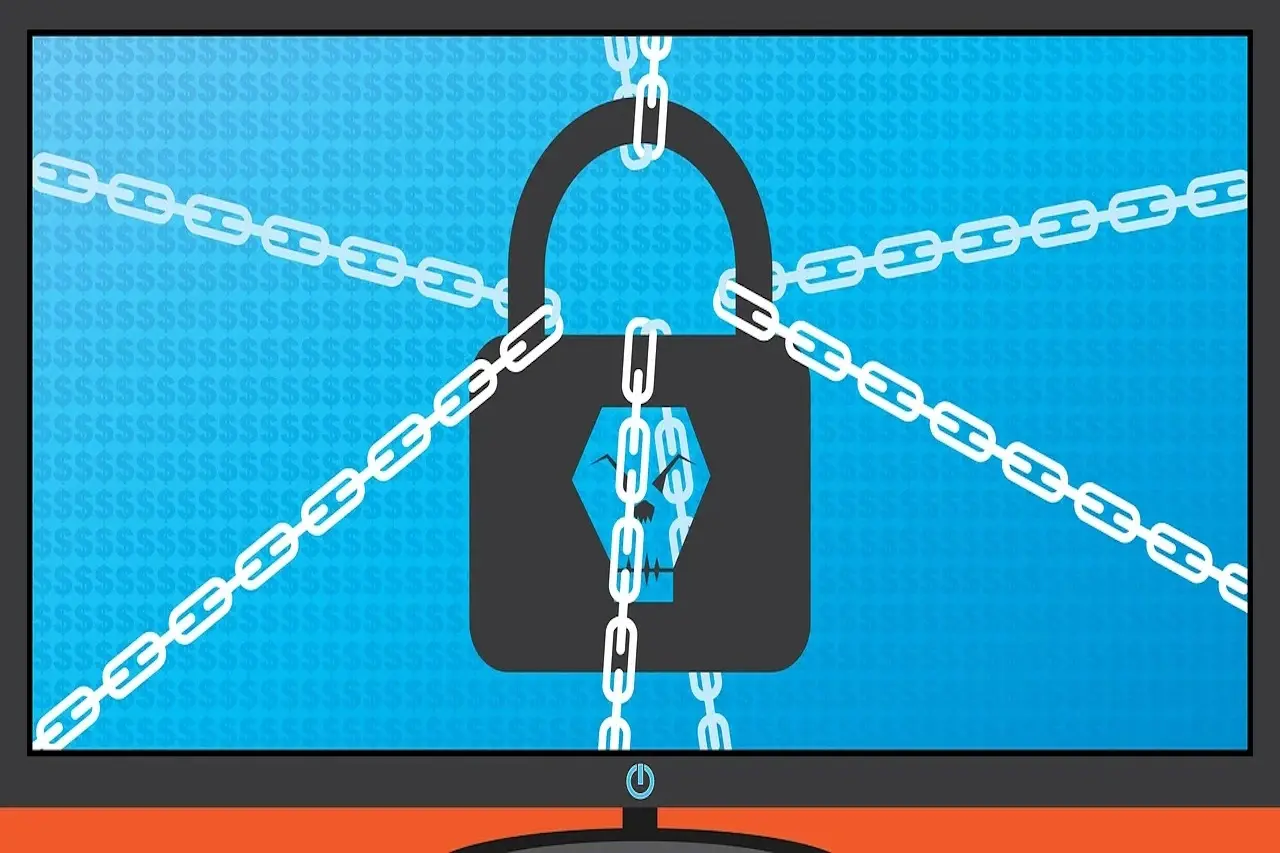Data backup rule of 3
Perhaps I don’t have to explain why we need backups but just in case, it's really simple.
Our client portal provides all the tools you need to create, view or update your support requests.
For urgent IT support during business hours, or if you suspect anything suspicious call 01314528444 for the fastest response.
If one of our team has asked you to start a remote control session on your computer, use the remote control menu option above.
5 min read
itfoundations
Originally posted on April 19, 2021
Last updated on January 08, 2025
In this blog, we explore what data encryption is, what the risks are, and if you should trust it.
In the modern world, getting hacked is the most common global fear when it comes to personal safety. However, many people believe that their data is completely safe if they encrypt it because encryption is designed for the very purpose of keeping data safe, secure and out of the hands of anyone who might have a malicious motive to obtain it. But how safe is your encrypted data really? Can encrypted data be hacked?
Data encryption is a way to keep data secure by encoding the information in order to ensure that it can only be decoded or decrypted by utilising the right encryption key. When someone tries to access the data without the correct encryption key, it appears as scrambled text and cannot be correctly read or understood.
Encrypting data is used as a security measure to protect sensitive data from being accessed by parties that do not have the right to access it, such as malicious parties or those who might use the data for underhand and nefarious means. It is used to protect data at various security levels including personal data such as bank transactions as well as official government intel.
There are many different ways to encrypt data and the method used is often determined by whether the data is being stored somewhere or whether it is in transit.
Keeping data safe on your hard drive is much easier than securing it when it is passing between two people.
On your hard drive, it can be locked with a password that you know, or to your biometric data which is often the case these days. Phones and computers use facial recognition and fingerprints as the keys to your data. This is commonly known as symmetric encryption because you use the same password to lock and unlock your data.
When data is encrypted for sending to someone else, the receiver needs to know what the secret to unlocking the data is, without you transmitting the secret for all to see. This is where encryption standards and protocols come into their own. Very clever people worked out ways to secure data between senders and receivers without the need to send passwords. This type of encryption is called asymmetric encryption.
The simple answer is yes, encrypted data can be hacked. However, the situation is not as straightforward or as simple as that. Truthfully, hacking encrypted data is extremely difficult, time-intensive and involves a huge amount of technical knowledge on the hacker’s part. It also requires extremely advanced software to decrypt any data when hackers do not have access to the decryption key, although there has been a progression in software development used for these means and there are some hackers out there with that capability. There is concern among security specialists that quantum computing might lead to current encryption methods becoming obsolete overnight. Additionally, flags have been raised by experts about the rise of AI being another tool for breaking encryption with tests already showing it can reduce the time to break encryption by 90%!
There is concern among security specialists that quantum computing might lead to current encryption methods becoming obsolete overnight. Additionally, flags have been raised by experts about the rise of AI being another tool for breaking encryption with tests already showing it can reduce the time to break encryption by 90%!
Thankfully, software developers and security companies are constantly evolving protocols and products to stay ahead of these advances. This means that by the time criminals start using these technologies, we should already have the tools in place to defend against them.
There are several ways that hackers can breach security to access your encrypted data. One of the most common ways for hackers to obtain sensitive data is simply to steal the encryption key. They can also intercept the data before it is encrypted or after it has been decrypted. However, when this is not possible, the hackers are able to add an encryption layer which is performed by using an attacker’s key.
Hackers tend to approach symmetric and asymmetric encryption differently. In attacks on symmetric encryption, they may launch a cypher-text attack to crack the code by brute force or employ the plain text method. Asymmetric encryptions can be more vulnerable to attack but are often strengthened in order to deter hackers from mathematically solving the algorithms.
It may be concerning to know that there is the potential for encrypted data to be hacked, especially if your data involves highly sensitive information, such as financial records or access to your bank account and credit cards. Previous high-profile data breaches have sent many people’s blood pressure soaring. But the good news is that there are ways to maximise your security against hackers.
When the bugs in your code have not been patched with the latest fixes, that can be an open invitation for hackers to breach your system. Schedule regular system updates to ensure that your system does not have vulnerabilities that hackers can take advantage of. This makes it harder for hackers to access your system and steal any keys they could potentially utilise to decrypt your data.
Short, simple passwords are easily broken by criminals using powerful computers to run through combinations of characters until they find the right one (known as a brute force attack). That's why long passwords are better than short complex ones. Making sure that you don't reuse passwords also means that if a password gets leaked by one service, it can be used to unlock your data elsewhere. We wrote a whole blog all about creating good passwords here.
VPNs add an extra layer of encryption to your data, providing another buffer of cybersecurity against attack by hackers.
Storing your encryption and decryption keys in a password-protected file or even offline can be one of the most effective ways to deter hackers from stealing any of your data. Due to the fact that actually deciphering encrypted data without the correct key is so difficult and lengthy, hackers will try and steal the key more often than not, rather than pursue the labour-intensive process of cracking the data themselves. If you protect your key, you will have a significantly improved chance of protecting your data.
Whether you are an individual who wants to keep your data safe, a small business concerned about your cyber security or part of a large corporation that regularly transmits sensitive data across the internet, using a specialised firm for advice and tools to keep your encrypted data safe is an excellent idea. Professionals will boost your security to the maximum, ensuring that there is maximum deterrence for hackers if they are considering stealing your important data.
If you are doing everything you can to protect yourself against hackers and keep your encryption and decryption keys safe and sound, then encryption is an excellent option for keeping your data secure.
In some ways, encrypting data is a lot like locking the doors and windows of your house and setting your burglar alarm when you go out. It does not guarantee that somebody will not break into your home, but it makes it significantly harder for them and proves to be an excellent deterrent.
When you are asking the question, can encrypted data be hacked, although the answer is that it can be, it is much more difficult to obtain access to your sensitive data than if you do not employ encryption.
The answer is maybe. It very much depends on what device you use and what service you use.
Mobile phones and tablets generally encrypt the data stored on them by default, locked to your biometrics or PIN. Modern laptops and PC's do the same thing.
Cloud services like Microsoft's OneDrive and Google Drive encrypt that data when it's stored and when your uploading and downloading it.
If you send an email from Outlook, Gmail or Yahoo it'll be encrypted with a protocol called TSL which is better than nothing but it isn't a reliable guarantee that your email is unreadable. Services like ProtonMail use end-to-end encryption meaning that only the sender and recipient can read the message. Outlook does offer additional encryption options by they aren't usually set on by default as they can be quite intrusive for the recipient if they aren't also using Outlook.
If you use an old computer then there's a good chance that your data probably isn't being encrypted at rest by default because it's missing the technology to do so. If you want to protect your data with encryption you need to add a password to files and folders you want secured.
If you use some older email services they may not be encrypting your emails either.
Contact us at IT Foundations to find out more about keeping your data safe from hackers and for all your IT solutions including IT support, Microsoft 365 cloud migrations, business consultancy and of course data protection. Our team of experts are here to help you.

Perhaps I don’t have to explain why we need backups but just in case, it's really simple.

Protecting your computers can be a daunting task, not to mention all the other devices that your business may use including tablets, mobile phones,...

Effective Password Management In this, our final blog in this series on how passwords help you protect your most important business data, we look at...